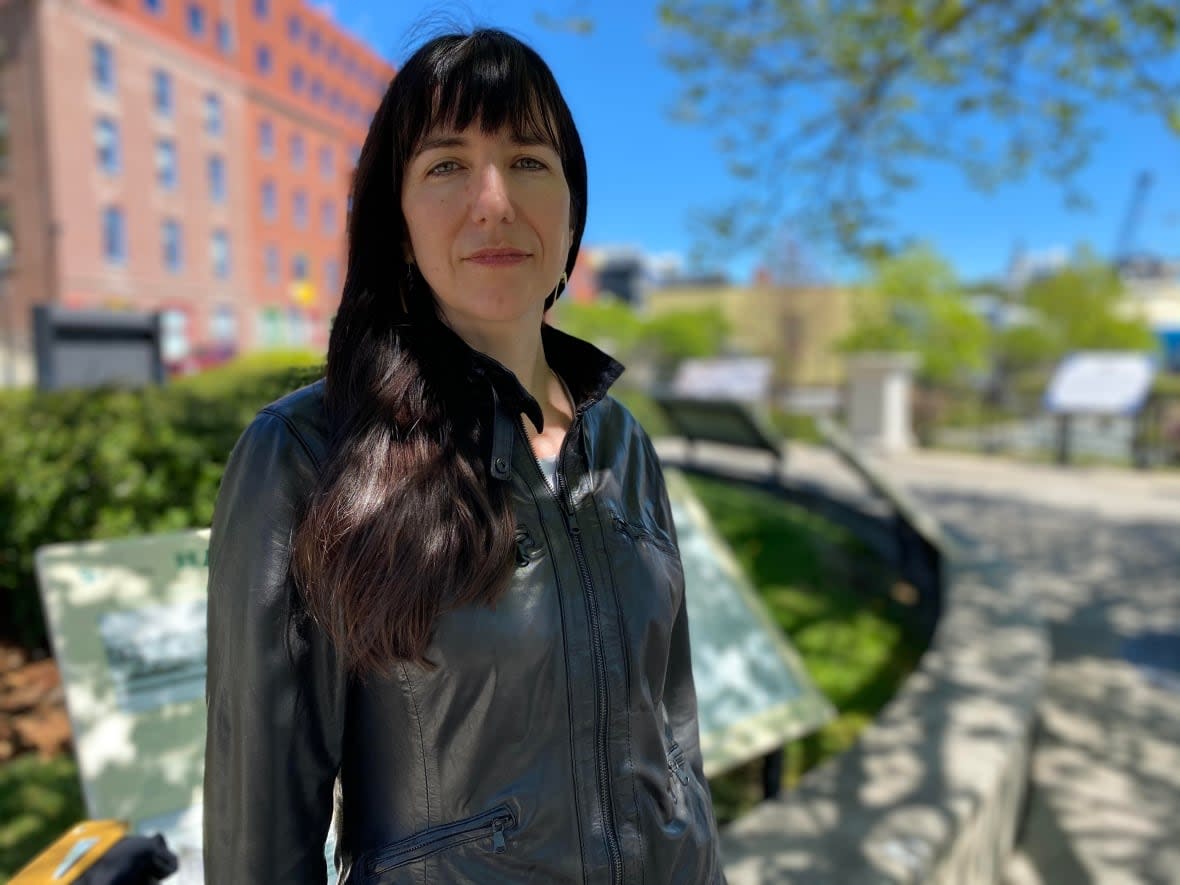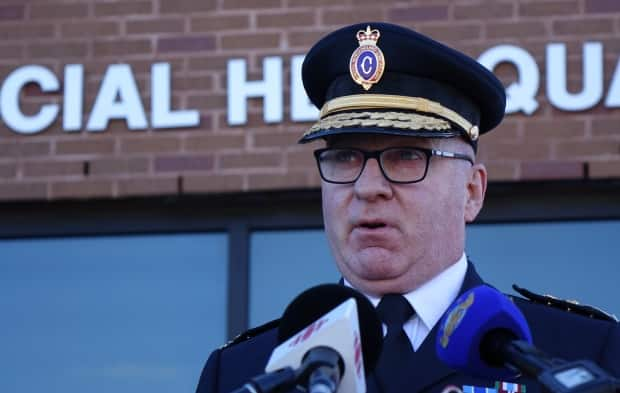Police accountability a 'gaping hole' in N.L., says scathing new civilian report

A new report condemning the state of police oversight in Newfoundland and Labrador is proposing a complete overhaul of who watches the province's two police forces.
St. John's-based organization First Voice — which is led by the Indigenous advocacy group First Light and backed by lawyers' associations and the St. John's Status of Women Council — released a draft report Monday arguing for the installation of a police oversight board composed of civilians and independent of both police agencies and the Department of Justice.
"We came to the conclusion that there are some really gaping holes in this province," said Catherine Fagan, a lawyer, president of First Light, and co-chair of the Working Group on Police Oversight.
"There's clearly a problem right now in terms of trust and confidence in the police."
The report comes a year after more than a dozen women approached Mount Pearl lawyer Lynn Moore, alleging they were sexually assaulted by on-duty Royal Newfoundland Constabulary officers, and after a Labrador woman spoke to CBC News about her own ordeal with her ex-husband, an RNC sergeant.
First Voice cites those allegations as a major impetus for its report, as well as complaints from the province's urban Indigenous population.
'Inherent conflict of interest' cited
Newfoundland and Labrador has several mechanisms that provide police oversight. The RNC Public Complaints Commission (PCC) fields accusations from civilians about police conduct, and has the power to hear complaints through an adjudicator and dole out disciplinary action.
However, the report points out, the RNC chief plays a central role in the complaints process — an "inherent conflict of interest … where he or she must always weigh the competing demands of justice against the likely desire to maintain a favourable public image of the force."
They can even use force, deadly force. Yet there are actually fewer and weaker mechanisms of accountability. - Catherine Fagan
The other mechanism, the newly-minted Serious Incident Response Team (SIRT), is composed of a lawyer and two seconded police officers, one each from the RNC and RCMP.
The report refers to SIRT as having a "self-investigative structure," which raises concerns about impartiality.
"It is unclear whether either of these existing oversight bodies has the will — or even the legal authority — to investigate and address systemic problems in policing," the report says.
When compared to provinces, the report says, Newfoundland and Labrador "has among the weakest and least effective models for transparency and accountability of police."
"Given the troubling history of policing in the province, it is clear that the existing policing requirements and training standards are insufficient," the report continues.
"Without an adequate civilian-led police oversight body … examples of police misconduct … are likely to continue."
Oversight board 'proactive'
First Voice is proposing the creation of a civilian-led police oversight board, which Fagan describes as a "proactive" agency that can look at systemic issues with policing.
"That's a body that can really look at all of the policies, the budgeting, the priorities, use of force, the training for police officers," she said.
Such mechanisms already exist across Canada. The Ontario Civilian Police Commission, for instance, can conduct inquiries into police conduct and provide enforcement. It's one of three civilian oversight bodies in Ontario.

Fagan says creating one in Newfoundland and Labrador could restore public faith in the province's police forces.
The report proposes that the oversight board should be a regulatory tribunal that has exclusive power to create policies about police use of force, training, standards of conduct and how police officers are investigated for alleged misconduct.
The board, ideally made up of seven to 11 commissioners, would also have the exclusive power to hire or fire the RNC chief, SIRT director and the head of the PCC.
Such a mechanism would also, Fagan adds, bring policing in line with other professions — lawyers, dentists, and doctors, for example — who are accountable to similar disciplinary boards.
"The police are very different from these other actors," she said.
"They can arrest you, they can search your house, they can search your property. They can even use force, deadly force. Yet there are actually fewer and weaker mechanisms of accountability."
The report also suggests changes to strengthen the PCC and SIRT, such as having a judge preside over public complaint hearings and eliminate police officers from their investigative roles within SIRT.
In an email to CBC News, SIRT director Mike King said his approach has been collaborative, and he feels it's critical to work with community organizations and others when developing policing policies.
"I am proud of the establishment of SIRT-NL and feel strongly we have been successful thus far in holding police officers in Newfoundland and Labrador accountable," he said in the statement.
King said SIRT had "overseen or investigated several files in which police officers were either arrested or charged," and have made "all our reports public so Newfoundlanders and Labradorians are kept informed and can understand the decisions we make."
King also said the team has engaged in community outreach, including meeting with First Light and and women's groups, and have had cultural sensitivity and trauma-informed sexual assault and domestic violence training.
"My goal is to establish SIRT-NL as the very best oversight agency possible for all Newfoundlanders and Labradorians," he said in the statement.
Indigenous trust lacking: Fagan
Fagan says First Light has also heard for years that the province's urban Indigenous population has lacked trust in local police.
It's a problem that extends nationwide, she said, and was addressed at the National Inquiry into Missing and Murdered Indigenous Women and Girls.
"They identified what they called the failure of the police to act to protect Indigenous people, particularly Indigenous women and girls," Fagan said.
"And they said that there were really systemic problems in policing that need to be addressed immediately. That inquiry came out around three years ago, and as far as we can tell, the provincial government has not even begun a serious process of reviewing those calls for actions, never mind implementing them."
Those calls to action urge provinces to create Indigenous oversight bodies that observe investigations into any case involving an Indigenous person.
They also ask governments to train police in cultural sensitivity and racial bias.
Fagan says First Light will hear comments from the public on its draft report, before issuing a final report in the fall.


